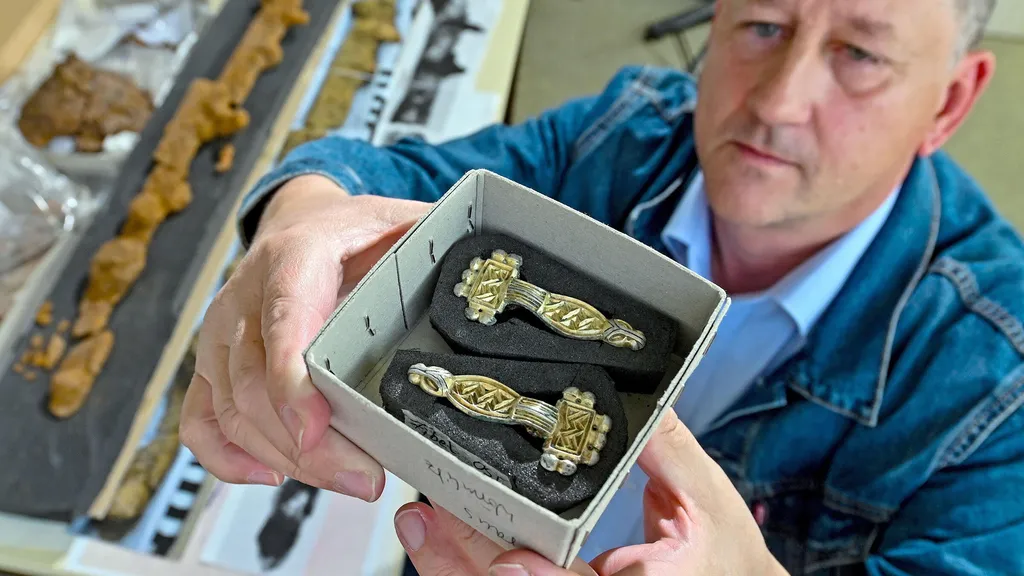Archaeologist Arnold Muhl shows early medieval fibulae, a part of women's clothing, that were discovered in the cemetery. This and other artifacts from the excavation are now in the workshop of the Landesmuseum für Vorgeschichte (State Museum for Prehistory) in Germany.
(Image: © Hendrik Schmidt/dpa-Zentralbild/ZB; Alamy)
An early medieval cemetery unearthed in Germany may not contain "a harem for the hereafter," as some news outlets reported; but it's still a remarkable find, likely holding the remains of a wealthy aristocrat and about 80 other people, some buried with riches such as glass bowls, gold jewelry and sharp weapons, according to the State Museum of Prehistory in Halle, Germany.
The individuals buried at the roughly 1,500-year-old aristocratic estate were part of the short-lived Thuringian Kingdom, which lasted for about 80 years before the Franks conquered them in A.D. 531. Before its demise, the kingdom reigned during a tumultuous time known as the Migration Period, when the so-called Barbarian peoples, such as the Huns, Goths and Vandals, gained power as the remains of the Western Roman Empire crumbled.

No comments:
Post a Comment